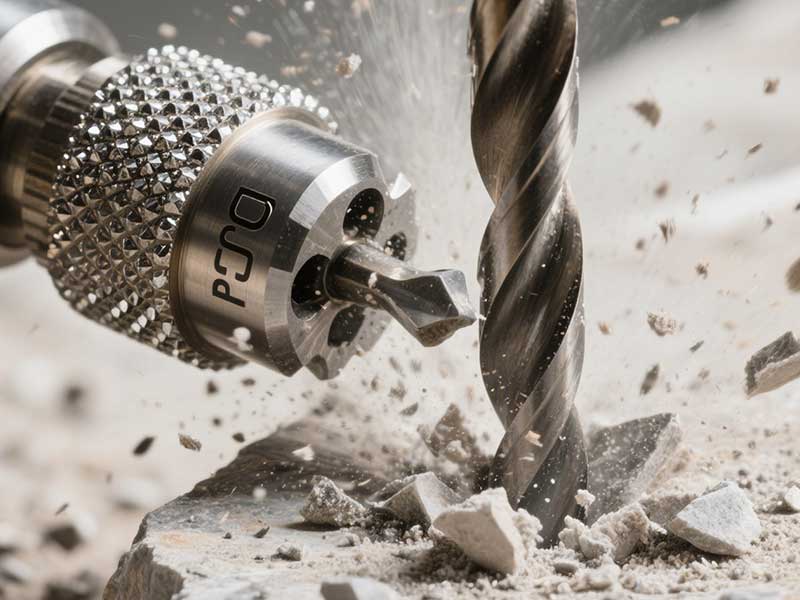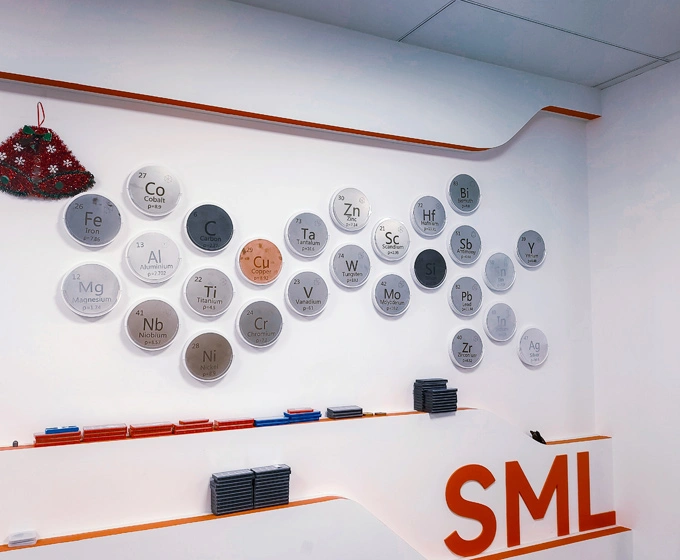In modern manufacturing, the demands for machining accuracy, surface finish, and tool life are continually increasing. PCD tools (Polycrystalline Diamond tools) have become leaders in the field of superhard tools due to their exceptional hardness and wear resistance.
PCD (Polycrystalline Diamond) is formed by sintering synthetic diamond micropowder under high temperature and pressure. Its hardness is second only to natural single-crystal diamond but offers better impact resistance and uniformity. This makes PCD tools particularly outstanding in machining non-ferrous metals (such as aluminum alloys and copper alloys), composites (such as carbon fiber-reinforced plastics), and high-silicon aluminum alloys. For manufacturers, ensuring the quality of the raw PCD blank is crucial for producing high-performance tools. Similarly, the availability of a high-quality PCBN blank is also vital for other superhard cutting applications.
For distributors of superhard tools, the market demand for PCD tools is rapidly increasing, especially in the automotive, aerospace, and electronics industries. Compared to traditional carbide tools, the lifespan of PCD tools can be increased by 5-10 times, significantly reducing customers' tool replacement frequency and downtime costs.

Medical companies and precision engineering manufacturers demand almost perfection in machining quality, especially in the production of implants, surgical instruments, and micro-components. PCD tools, with their extremely low friction coefficient and ultra-precise cutting capabilities, become the ideal choice for these industries. For instance, a PCD micro drill is indispensable for creating intricate features in miniature medical devices.
For example, when machining titanium alloys or cobalt-chrome alloys (common in orthopedic implants), PCD tools can effectively reduce burrs and ensure surface finishes below Ra 0.1μm, meeting medical-grade precision requirements. Moreover, the chemical inertness of PCD tools prevents reactions with workpiece materials during machining, avoiding contamination risks, which is crucial for the medical industry. This level of precision is also why specialized tools like an MCD end mill are often preferred for ultra-fine finishing.
For heat treatment companies, PCD tools also hold unique value. Many quenched or surface-hardened materials (like high-hardness aluminum alloys) can cause rapid tool wear during machining. The high heat resistance of PCD tools (capable of withstanding temperatures above 800°C) makes them ideal for such applications.
Although PCD tools have excellent performance, different application scenarios require matching different tool parameters. Here are some key considerations:
Diamond grain size: Coarse grains (e.g., 20-30μm) are suitable for rough machining, while fine grains (e.g., 2-10μm) are more suitable for finishing and high surface finish requirements.
Tool geometry: The rake angle, clearance angle, and edge treatment method will affect cutting force and tool life, and need to be optimized based on material characteristics.
Substrate material: Typically, carbide substrates are used, but in high-impact conditions, a steel substrate may be chosen to enhance toughness.
For distributors of superhard tools, it's recommended to work closely with customers to analyze their machining needs and provide customized PCD tool solutions. For example, for the micro-part machining in the medical industry, ultra-fine grain PCD and special coating technologies might be needed, whereas for the high-volume aluminum alloy cutting in the automotive industry, the focus may be more on tool economy and long-term stability. Furthermore, to maximize the lifespan and performance of these valuable tools, considering a professional diamond tool sharpening service is highly recommended. For tool manufacturers, partnering with a reliable surface grinding wheel manufacturer is key to producing high-precision tools.
As the manufacturing industry moves towards higher accuracy and efficiency, the application scope of PCD tools will continue to expand. Whether for superhard tool distributors, medical companies, or heat treatment enterprises, establishing a position in the PCD tool market in advance will bring significant competitive advantages.
As one of the top superhard tools and PCD tooling manufacturers, JoyJet offers a full range of PCD tool solutions, covering turning, milling, drilling, and precision grinding applications. Our team of experts can provide technical support and custom services, helping customers achieve more efficient and economical machining processes.
Choose JoyJet PCD tools and take your machining process to new heights!

mcd tool definition and function
applications of pcbn cutting tools